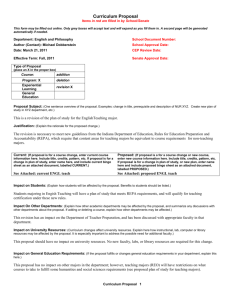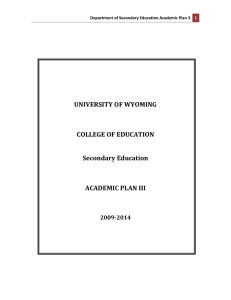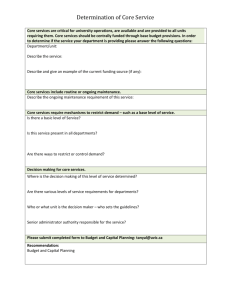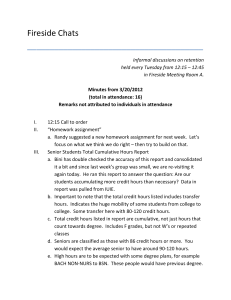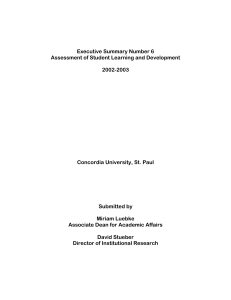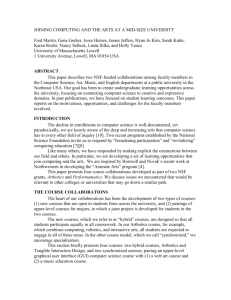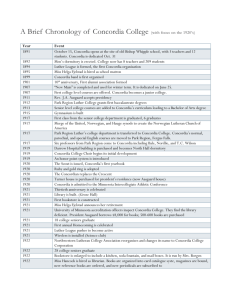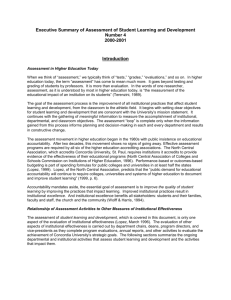Executive Summary of Assessment 2012
advertisement
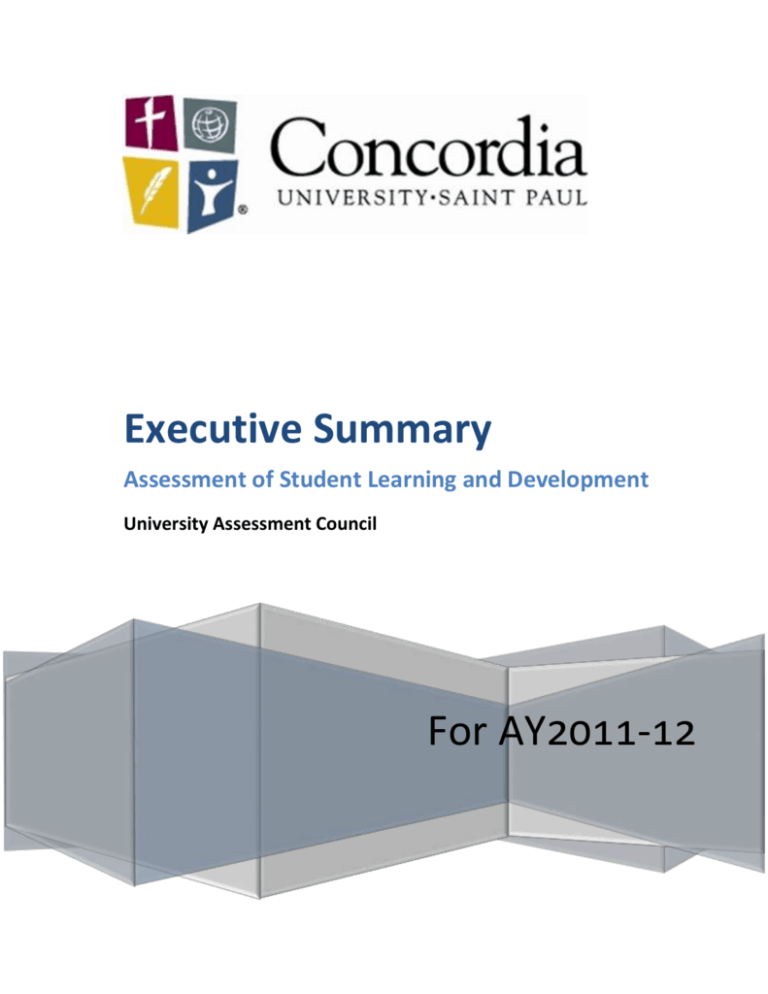
Executive Summary Assessment of Student Learning and Development University Assessment Council For AY2011-12 Assessment in Higher Education Redux Back in 1999, Celia Lopez, of the Higher Learning Commission, predicted that the “public demand for educational accountability will continue to require colleges, universities and systems of higher education to document and improve student learning” (1999, p. 6). After 14 years, the demands for the assessment and improvement of what students are actually learning – confirming educational value – are soundly with us. No fad, this. Regional accreditation organizations, government agencies, and discipline and professional accreditation groups continue to require evidence of student learning outcomes. Even more than meeting accountability mandates, the essential goal of assessment is to improve the quality of student learning by improving the practices that impact learning. This process begins with setting clear expectations for student learning and development (learning outcomes) that are consonant with our mission. The assessment process continues with the gathering of meaningful information that demonstrates student accomplishment of institutional, departmental, and classroom expectations. The assessment “loop” is complete only when the information gained from this process informs planning and decision-making in each and every department and results in constructive change. The assessment reports prepared in the summer of 2012 by academic departments demonstrate, as in the reports from previous years, that the majority of faculty at Concordia University are reflecting on their practice as teachers and improving the curriculum and the quality of student learning. Academic majors and graduate programs at Concordia University continue to include a wide range of assessment activities, for example, internships, portfolios, performances, exhibitions, business plans, comprehensive exams, and research projects. In addition, an increasing number of faculty are using the University’s assessment management system to document and aggregate individual student performance measures, and to analyze patterns of performance across the major. Assessment of learning in the academic major in traditional programs continues to be a strength for Concordia University. Most departments were able to document their efforts to review evidence of the learning that had taken place in majors and graduate programs, and then, where there were disappointments or concerns about the outcomes, to honestly deliberate about how to improve the depth, quality, or other aspects of that learning. Some departments indicated that they are making or considering changes in pedagogy, course content, learning objectives, or assessment measures in response to assessment results. Above all, it appears that where assessment has seemed to have had the greatest impact, faculty members have engaged in collegial discussions around the common goal of improving the quality of students’ learning, Despite the challenges of limited personnel and other resources, most faculty are finding ways to review evidence of student learning and development, analyze and discuss its implications, and make changes intended to improve the quality of that learning. For the most part, faculty reported that students are satisfactorily meeting the goals and objectives set for academic programs, despite continuing significant variability in the quality of students’ performances. General Education and University Outcomes General Education at Concordia University is defined as the set of required curriculum that exposes students to a variety of content and disciplines. University Outcomes are those academic, professional, and personal skills and dispositions that are commensurate with a university degree. Again this year, as we have seen each year for as long as we have been collecting annual reports, many departments noted that students’ writing skills in particular needed improvement. In previous executive summaries, intentions to address student writing skills across the institution were recorded, but no systematic program to that effect has yet been carried out. The General Education Committee collected assessment reports from academic departments that provide traditional courses to meet general education requirements. Each department has identified two University Outcomes that general education courses in their area will address and measure during the semester. The reports indicate how well students in those courses are meeting those outcomes and what kinds of improvements are planned to increase the quality of student performance on those outcomes. One thing that can be noted from these reports is that not all departments are intentionally addressing and measuring the University Outcomes they’ve chosen. Some faculty have mentioned informally that they aren’t sure how to teach to these outcomes or how to incorporate them into their content area. Others express concern that they don’t have time in their courses to work with students whose performance on these outcomes is so far behind that of other students. Regarding documentation, not all course section instructors are entering their measurements of student achievement into the assessment management system to be aggregated with the others. This challenge makes the data that we do have of limited use, since there are large swaths of student performance results that are not known. A summary of these University Outcomes assessment reports for general education courses is in the matrix that follows. In addition to general education courses, several University Outcomes are revisited and measured as part of some academic majors and graduate programs. The Assessment Council is working to collect updated Curriculum Maps for all the majors and graduate programs so that the University can document how the University Outcomes are being addressed across an entire degree program. Learning and Development in the Academic Major Academic departments document their assessment activities and use of assessment results for improvement in an annual assessment report for each major or graduate program. A total of 39 assessment reports for 2011-12 were completed for undergraduate academic majors and graduate programs. Appendix III is a summary of Concordia University faculty plans for improvement in academic programs based on assessment of students’ achievement of established learning outcomes. Recommendations: Evidence of an effective University assessment process would be further supported if the Deans were to use this Executive Summary to develop college and program goals that reflect faculty conclusions about needed improvements for student learning. Such goals could be evidence of the kind of data-driven decision-making that the Higher Learning Commission is looking for. 2. Based on faculty reports, an institution-wide effort to improve student writing, especially writing that is far behind expected “grade-level,” is very much needed. 1. 3. 4. Continued encouragement of faculty by supervisors to use the University’s assessment management system (eLumen) is needed. In order to see the full value of this system for the documentation needed for accreditation and improvement, more student performance data needs to be included. Ongoing training on the effective use of the assessment management system should be developed and provided to deans, department chairs, faculty, and adjunct faculty. Reference: Lopez, C.L. (1999). Assessing student learning: Why we need to succeed. Assessment and Accountability Forum, Summer 1999, 5-7/18.
